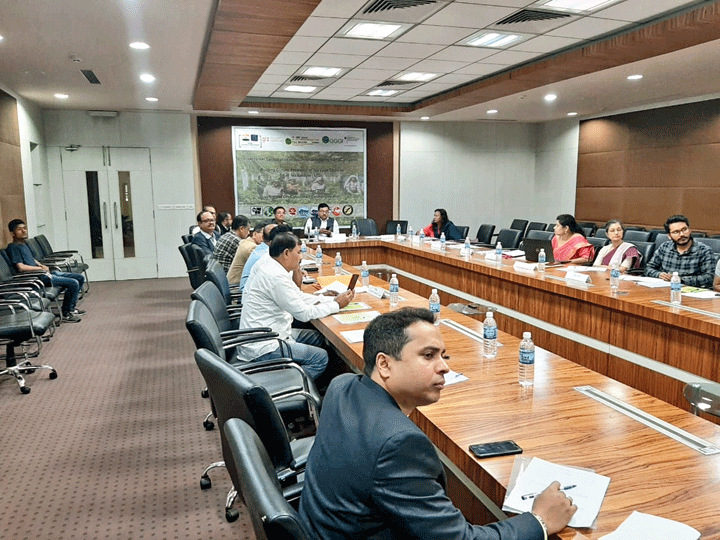Help is on way for small tea growers who don’t have much knowledge on adapting to climate change. The Tea Board India on Thursday proposed to undertake a project on building climate resilience for small tea gardens in Assam and other tea-growing states.
A stakeholders consultation was held at the tea board office on Thursday to prepare and submit a concept note to the National Bank for Agriculture and Rural Development (Nabard) and the ministry of environment and forest and climate change.
Officials of the tea board and Global Green Growth Institute, led by country representative Shantanu Gotmare, attended the meeting. Deputy chairman of the Tea Board India Arun Kumar Ray graced the occasion, while representatives of the industry attended the meet.
The Tea Board will be an executing entity under the flagship Scheme of the National Adaptation Fund for Climate Change.
The tea board said the project was initiated as the small tea growers can hardly access scientific knowledge to adapt to climate change and improve farming techniques to prevent its impact.
Nabard, the National Implementing Entity, is responsible for implementing the programme.
The tea board said climate change is one of the biggest threats to the world and urgent attention is required to address its challenges. The adverse impacts of climate change include long spell of increased temperature, erratic rainfall and prolonged drought. These affect the industry’s sustainability, which supports over 1.16 million workers. The livelihood of over 3.5 million people depend on tea.
“Assam has been under severe threat of climate change and the tea sector impacted. Unless the issues are addressed, they will pose a danger to the sustainable livelihood of the population dependent on tea cultivation. Similarly, the effects are being felt in other tea growing states as well,” it added.
The tea board said the proposal, once finalised, would be sent to the Union ministry of environment for final approval.
Global Green Growth Institute (GGGI) and the German Agency for International Co-operation have carried out a preliminary study, Carbon Footprint Analysis, in coordination with the tea board and other organisations, in two tea-growing districts of Assam. GGGI is headquartered in Seoul, South Korea, with 32 member countries. Ban Ki-Moon heads the organisation.
Ray said the project report has been made and presented to all stakeholders. The Assam government has to approve this, following which the plan will be put up for funding, he added.










